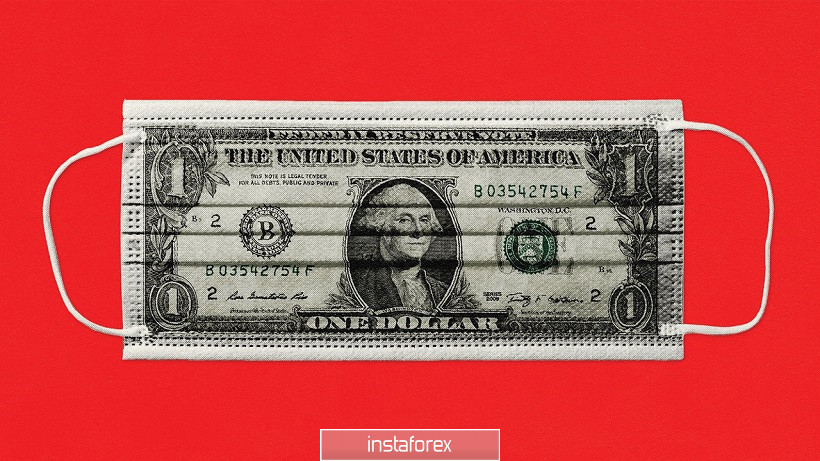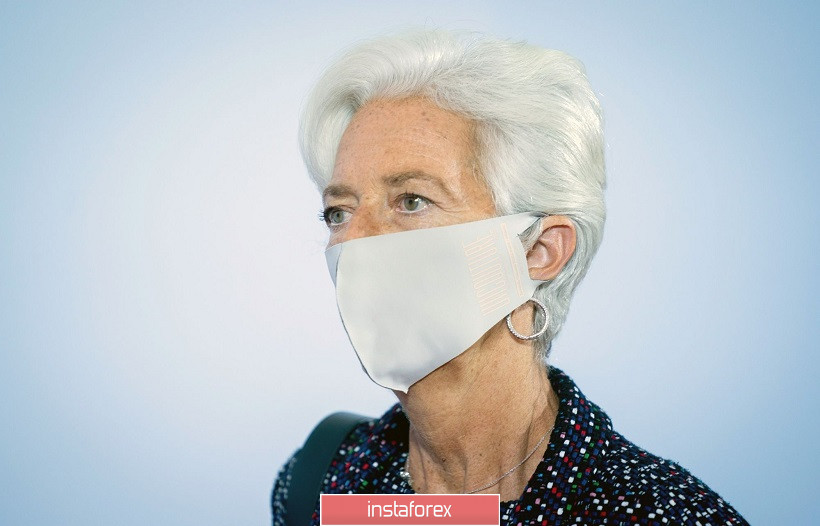There is a struggle with the position of the bulls and bears on the EUR/USD pair. Sellers managed to lower the price to the bottom of the 17th figure, but failed to consolidate within the 16th price level. In turn, the buyers were able to keep the pair in the area of the 17th figure, but could not return to the area of the 18th price level. As a result, the pair drifted while waiting for next news impulses.
It is worth noting that the data on the growth of the Chinese economy published this morning could not provoke the pair, as it turned out to be very controversial – some components came out in the "positive zone", while others, on the contrary, did not reach the predicted values. In general, it can be concluded that one of the largest economies in the world is gradually recovering from COVID-19, but the recovery phase is disappointing. In fact, such vague conclusions could not provoke volatility. Thus, the EUR/USD pair remained in the flat.

Technically, the priority remains with short positions. The bears were able to break through the support level of 1.1730 (the middle line of the Bollinger Bands indicator on the daily TF) last Friday, thereby opening their way to the lower border of the Kumo cloud on the same time frame, which corresponds to the level of 1.1630. But for the downward trend to develop, it is necessary at least to enter and consolidate in the area of the 16th figure. Despite the overall bearish sentiment for the pair, sellers failed to attack last week. Due to political factors, the pair returned to its previous positions, closing at the level of 1.1719.
This week's trading started with weak price fluctuations, mostly because of conflicting fundamental background. On the one hand, the US currency, as a protective instrument, retains its growth potential due to COVID-19. On the other hand, it is subject to pressure from internal political factors.
On another note, the US presidential election will be held in just two weeks, which could turn into a severe political crisis. This scenario is quite likely if there is no clear winner based on the vote count. Trump has repeatedly criticized the format of the elections (taking into account the pandemic, the Americans were allowed to vote, including by mail), allowing for falsifications and incorrect counting of votes. Last Friday, he announced that he was ready in case of loss to peacefully transfer power, if the elections are fair. For some reason, most of the press focused on the first part of the phrase, while in my opinion, Trump is clearly preparing for a prolonged struggle after the election results.
It should be recalled that when George W. Bush and Al Gore were candidates for the presidency in 2000, the country lived in oblivion for several weeks. The elections were held on November 7, and the name of the new president was determined only on December 12. Moreover, it was not the election commission that announced it, but the US Supreme Court. Therefore, experts assume that Trump may repeat this path, plunging the country into a regime of political uncertainty.
This fundamental factor supports the US currency. In turn, the euro is under pressure from the coronavirus. European countries are returning strict quarantine restrictions due to the rapid rise in new cases of COVID-19. It was indicated in recent polls that Europeans are being more pessimistic in fighting the pandemic. So far, the authorities of European countries have hesitated to talk about a repeated scenario (lockdown), but the already introduced restrictive measures can significantly slow down the recovery processes.
Today, the euro's decline has slowed down in response to the last speech of the ECB's head, Christine Lagarde. In an interview with the French edition of Le Monde, she made it clear that the option of new stimulus measures may be considered against the background of recent events. Lagarde emphasized that the ECB has not yet exhausted its arsenal of monetary policy instruments. However, she added that the ECB can do more if needed. In the "pre-crisis" times, traders would negatively perceived such rhetoric, but now investors are waiting for additional incentives from the regulator.

Therefore, traders of EUR/USD are forced to trade amid conflicting fundamental factors. Today, the pressure will swing either one way or the other, as there are a lot of representatives from the Fed and the ECB expected to speak. During the US session, Fed representatives, Jerome Powell, Richard Clarida, Patrick Harker, Raphael Bostic and John Williams will make a statement. On the side of ECB, we have Christine Lagarde, Jens Weidmann and Yves Mersch. All of the above officials will take part in various conferences, forums or councils (mostly online). In general, the advantage on the EUR/USD pair remains with short positions despite the conflicting fundamental factors – primarily due to the euro's weakness. Based on European experts' forecast, the COVID-19 situation in the EU countries will only get worse in the near future, which means that quarantine restrictions will only get stricter. The corresponding news flow will put pressure on the euro, which will allow the EUR/USD bears to test the support level of 1.1630 in the medium term.
 English
English 
 Русский
Русский Bahasa Indonesia
Bahasa Indonesia Bahasa Malay
Bahasa Malay ไทย
ไทย Español
Español Deutsch
Deutsch Български
Български Français
Français Tiếng Việt
Tiếng Việt 中文
中文 বাংলা
বাংলা हिन्दी
हिन्दी Čeština
Čeština Українська
Українська Română
Română

